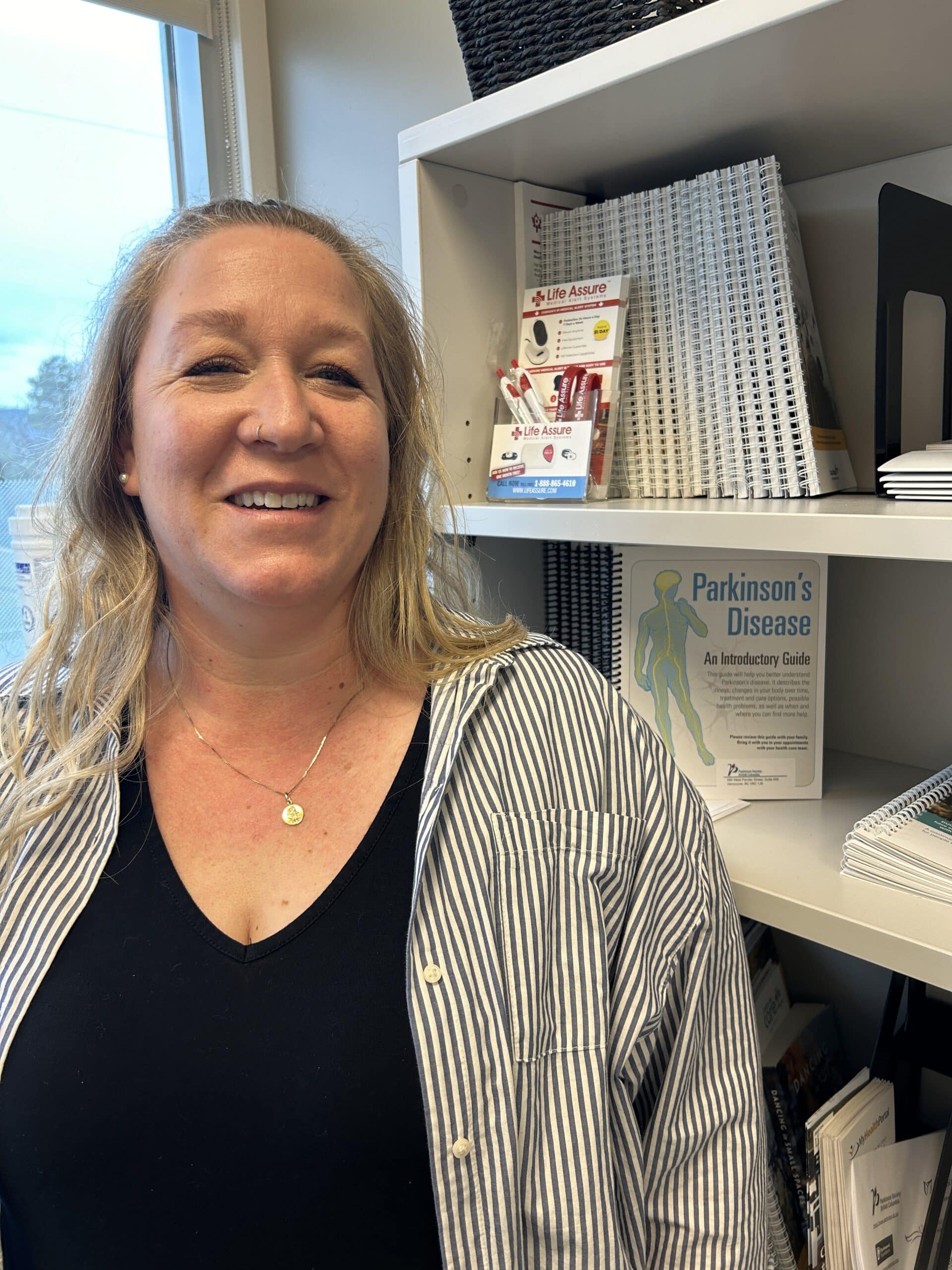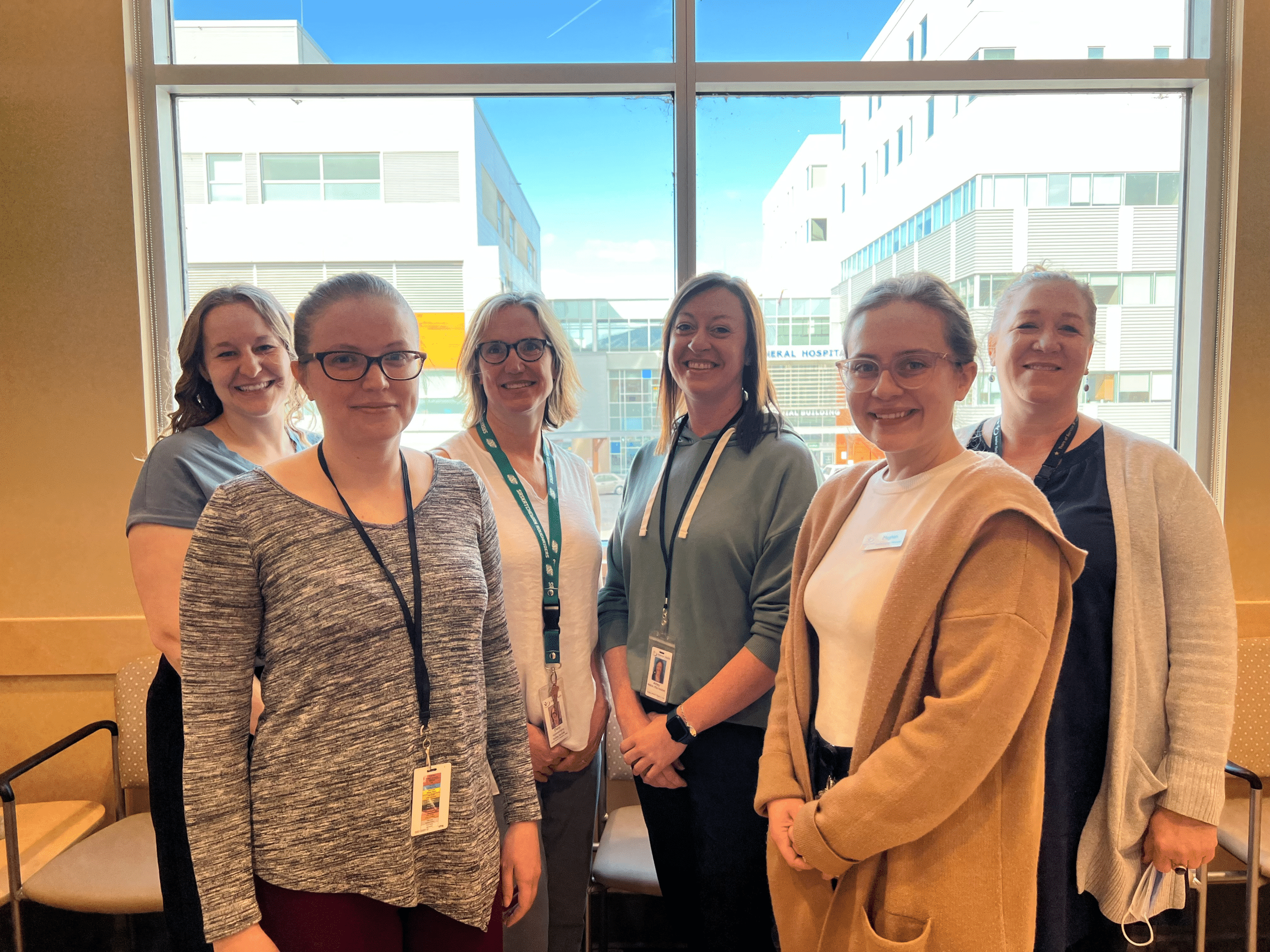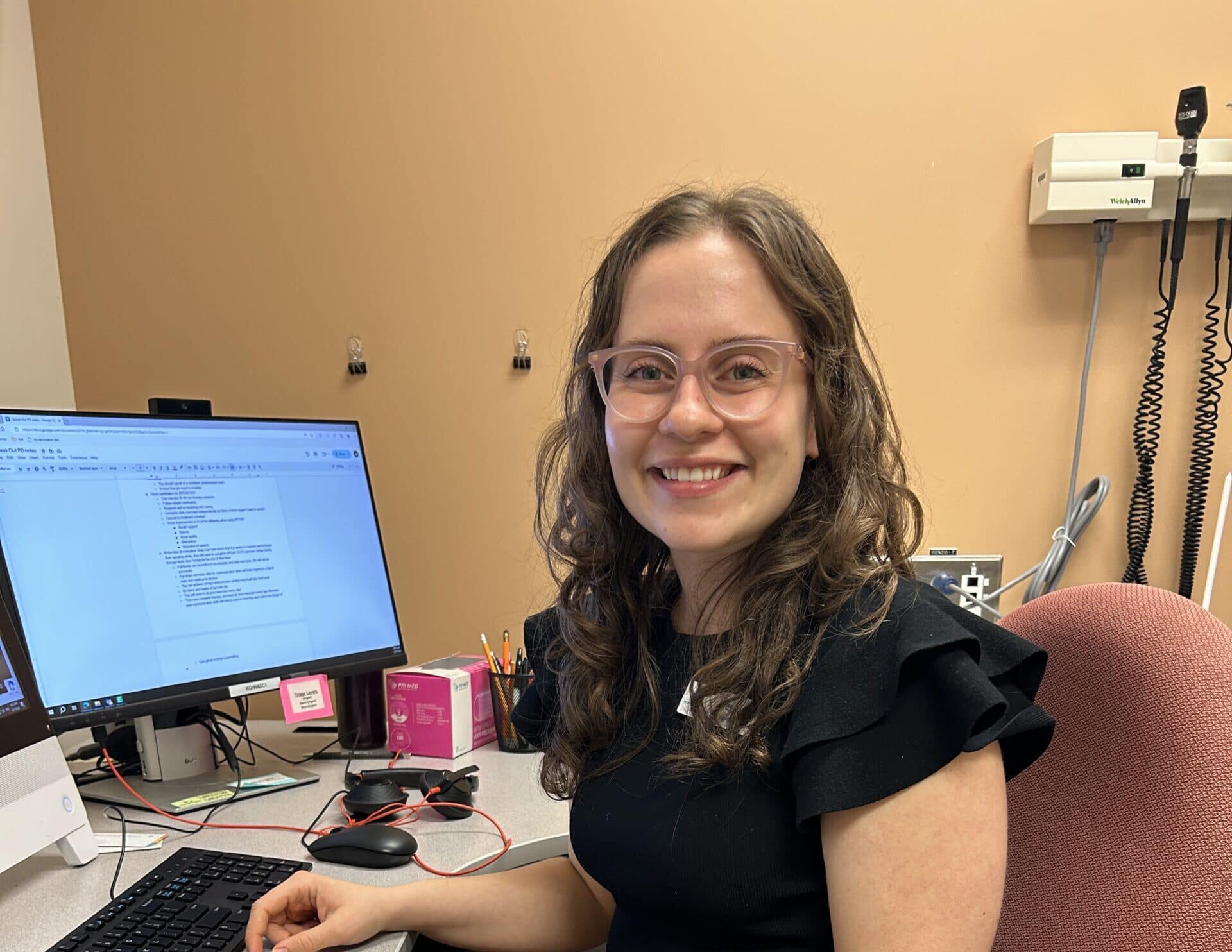In support of Parkinson’s Disease Awareness month this April, we’re introducing the community to the members of an Okanagan Movement Disorders Clinic at Kelowna General Hospital and their work to support patients and their families navigating a Parkinson’s Disease diagnosis.
ADVANCING CARE FOR PARKINSON’S
For someone with a Parkinson’s disease diagnosis, the journey to navigate the changes they experience in their body and mind can be frustrating and daunting. But thanks to an Okanagan Movement Disorders Clinic at Kelowna General Hospital (KGH), patients and their families have access to compassionate and comprehensive care.
 Meet Carmen Logan, BSN, and a nurse with the Okanagan Movement Disorders Clinic at KGH who is passionate about learning and applying advanced therapies that can help people with Parkinson’s disease.
Meet Carmen Logan, BSN, and a nurse with the Okanagan Movement Disorders Clinic at KGH who is passionate about learning and applying advanced therapies that can help people with Parkinson’s disease.
What is your professional background?
I have a Bachelor of Science in Nursing (BSN) and have been an Emergency nurse for 16 years. I joined the Movement Disorder Clinic in 2022. I also have experience working in the Pediatrics department and with our KGH health function teams.
What is your role with the Clinic and what are your primary responsibilities?
I have been trained in the delivery of advanced medication therapies for Parkinson’s disease and help to enroll, educate, and assist through the process of existing and new medications. There are only approx. 30 nurses across Canada educated in administering these treatments, which is one of the reasons my role was created in the Clinic.
I assist with patient assessments, conduct phone follow ups to assess how medication alterations are going and to address questions/concerns that patients may have. I also promote collaboration among allied health team members which includes our Physiotherapist, Speech and Language Pathologist and our Social Worker. When a need for supports is identified by the nursing team, patient or family member, and/or Dr. Wile, we discuss a care plan and follow up.
This team collaboration supports patients with Parkinson’s and their families to again manage challenges of their disease and we remain a continued support throughout.
What challenges do people face when diagnosed with Parkinson’s disease?
Every person with Parkinson’s disease has unique challenges when diagnosed—from physical health to mental/emotional and spiritual. The biggest challenge is the fact that it is an unpredictable trajectory and people have fears when comparing themselves to others.
How does your role in the Clinic support/address some of the challenges these people face?
I help patients and their families find and access resources, answer questions, and act as an advocate for them. I also work closely with the other members of our team, including Dr. Wile.
As part of the Closer to home than you think campaign, the KGH Foundation has committed to raising $5 million to establish a Centre of Excellence for Brain Health at Kelowna General Hospital (KGH)—a hub for training, research, innovation and leadership in the rapidly expanding fields of neuroscience, stroke care, degenerative movement disorders, chronic pain, dementia and other related clinical focuses.
The Centre also aims to support the advancement of excellence in brain health care, bringing research closer to regional patients and providing them access to the best possible treatments and life-saving care, close to home.
What is your vision for the Centre of Excellence in Brain Health at KGH?
I see the Centre as a full time, multidisciplinary clinic that sees people/families in a timely manner from referral and follow up through the trajectory of their disease. I hope to see more resources for these unique patients in an acute health care setting as well.
Why do you feel the Centre, and the work you do, are important for our community?
I like to think the advocacy for patients, encouraging further resources for people and their families, and education for public and other health care professionals helps the community better understand the growing population of people diagnosed with Parkinson’s in our region.
What is the most gratifying aspect of your work?
I enjoy being able to speak with people face to face and help them, and their families, navigate what they are going through with Parkinson’s disease. Being able to provide patients with hope and knowledge about treatments that support their quality of life is also something that I find gratifying about my work.
Earlier this year, the family of one of Dr. Wile’s patients, Barry Humphreys, announced a $1 million commitment to the KGH Foundation to advance regional Parkinson’s care at KGH.
This gift will grow the Movement Disorder Clinic’s capacity by helping to recruit more specialists who are skilled in the diagnosis and treatment of Parkinson’s and related conditions as well as fund projects and solutions that will advance care. It will continue to integrate wrap-around supports and develop a team-based care model that connects other sites across our vast region.
For more information and to give, please visit Brain Health | KGH Foundation



